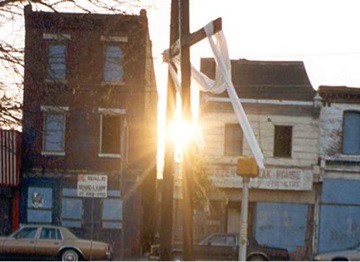 In faith communities all over – large and small, rural and urban – church leaders are wrestling with the challenges of Easter Day. Many are trying to figure out how to do it online, in a way that captures the “specialness” that has usually accompanied Easter in church. Others are discussing whether to move Easter celebrations to a later date. “Easter in July” has become a topic of interest in some circles.
In faith communities all over – large and small, rural and urban – church leaders are wrestling with the challenges of Easter Day. Many are trying to figure out how to do it online, in a way that captures the “specialness” that has usually accompanied Easter in church. Others are discussing whether to move Easter celebrations to a later date. “Easter in July” has become a topic of interest in some circles.
Should we just delay Easter until we can gather together again? With sincere respect for the complexities of congregational leadership in this moment and trust that pastors and churches are doing the very best they can in their particular situations, let me offer a thought.
Don’t.
I’m not offering this “don’t” out of deference to tradition or robust liturgical guidelines. I think keeping Easter right where it is may give us the opportunity to live into Easter in a Biblically authentic way that matches the moment.
With due consideration for all that creates that joyful Easter experience in many of our congregations—larger choirs, special decorations, lots of lilies, families in pews swelled by multiple generations, more lilies, trumpets, and the Hallelujah Chorus—this Easter gives us an unprecedented opportunity to experience key parts of the Biblical narrative.
For the gospels, Easter begins in the dark. With confusion and deep concern. And with uncertainty, a ragged narrative, inconsistent followers, deep grief that only grudgingly gives way to a tenuous hope, and the presence of God which—while sure throughout—is difficult to understand or grasp at first.
So too, these past few weeks found our faith communities in the dark, confused and concerned, especially for the most vulnerable among us. There is profound uncertainty about the future. We are crafting together a ragged narrative. We worry about inconsistent followers, and grief attends us even as we try to lift up hope. We are praying for, searching for, yearning for the presence of God, and finding it difficult to grasp God’s presence as much as we would like.
Not every Easter will be like this or should be like this. But in honor of the women who left the tomb “trembling and afraid” at the end of Mark’s Gospel, and the followers in Matthew who left the tomb Easter morning “with fear and great joy,” and the disciples in Luke who heard word of the resurrection as “an idle tale,” and Jesus’ followers in John who spent the time after Easter in a locked room – keep Easter right where it is.







No Comments